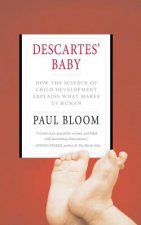
Code: 04791874
Chronic Disease in the Twentieth Century
by George Weisz
Long and recurring illnesses have burdened sick people and their doctors since ancient times, but until recently the concept of "chronic disease" had limited significance. Even lingering diseases like tuberculosis, a leading cause ... more
- Language:
 English
English - Binding: Hardback
- Number of pages: 328
Publisher: Johns Hopkins University Press, 2014
- More about this

69.48 €

Low in stock at our supplier
Shipping in 10 - 15 days
Potřebujete více kusů?Máte-li zájem o více kusů, prověřte, prosím, nejprve dostupnost titulu na naši zákaznické podpoře.
Add to wishlist
You might also like
-

South and America since World War II
33.06 € -

Ukraine, 1917-21
14.50 € -7 % -

Geostatistics for Natural Resources Evaluation
216.47 € -

Man Crazy
10.13 € -4 % -

Modern Utopian
17.64 € -16 % -

Descartes' Baby
28.39 € -

Prime-Time Families
40.47 € -

Cost of a Military Person-year
24.23 € -

101 Ground Training Exercises for Every Horse and Handler
24.84 € -20 % -

Thyroid Disease in Clinical Practice
121.82 € -

Apeetha
27.28 € -

Customer Satisfaction and Service Loyalty in Banking Industry
55.07 € -

Canadian Yearbook of International Law, Vol. 44, 2006
189.99 € -4 % -

BORN TO DIE SSA
8.41 € -18 %
Give this book as a present today
- Order book and choose Gift Order.
- We will send you book gift voucher at once. You can give it out to anyone.
- Book will be send to donee, nothing more to care about.
More about Chronic Disease in the Twentieth Century
You get 173 loyalty points
 Book synopsis
Book synopsis
Long and recurring illnesses have burdened sick people and their doctors since ancient times, but until recently the concept of "chronic disease" had limited significance. Even lingering diseases like tuberculosis, a leading cause of mortality, did not inspire dedicated public health activities until the later decades of the nineteenth century, when it became understood as a treatable infectious disease. Historian of medicine George Weisz analyzes why the idea of chronic disease assumed critical importance in the twentieth century and how it acquired new meaning as one of the most serious problems facing national healthcare systems. Chronic Disease in the Twentieth Century challenges the conventional wisdom that the concept of chronic disease emerged because medicine's ability to cure infectious disease led to changing patterns of disease. Instead, it suggests, the concept was constructed and has evolved to serve a variety of political and social purposes. How and why the concept developed differently in the United States, the United Kingdom, and France are central concerns of this work. In the United States, anxiety about chronic disease spread early in the twentieth century and was transformed in the 1950s and 1960s into a national crisis that helped shape healthcare reform. In the United Kingdom, the concept emerged only after World War II, was associated almost exclusively with proper medical care for the elderly population, and became closely linked to the development of geriatrics as a specialty. In France, the problems of elderly and infirm people were handled as technical and administrative matters until the 1950s and 1960s, when medical treatment of elderly people emerged as a subset of their wider social marginality. While an international consensus now exists regarding a chronic disease crisis that demands better forms of disease management, the different paths taken by these countries during the twentieth century continue to exert profound influence. This book seeks to explain why, among the innumerable problems faced by societies, some problems in some places become viewed as critical public issues that shape health policy.
 Book details
Book details
Book category Books in English Medicine Clinical & internal medicine Diseases & disorders
69.48 €
- Full title: Chronic Disease in the Twentieth Century
- Subtitle: A History
- Author: George Weisz
- Language:
 English
English - Binding: Hardback
- Number of pages: 328
- EAN: 9781421413020
- ISBN: 1421413027
- ID: 04791874
- Publisher: Johns Hopkins University Press
- Weight: 570 g
- Dimensions: 200 × 235 × 25 mm
- Date of publishing: 26. June 2014
Trending among others
-

Oxford Handbook of Clinical Immunology and Allergy
43.41 € -1 % -

Graphic Guide to Infectious Disease
48.28 € -

Healing Add
17.95 € -15 % -

Bethesda Handbook of Clinical Oncology
71.20 € -3 % -

Radical Remission
18.15 € -10 % -

Emperor of All Maladies
12.57 € -20 % -

CT Anatomy for Radiotherapy
91.19 € -

Autoimmune Solution
11.35 € -28 % -

TNM Classification of Malignant Tumours 8e
55.07 € -9 % -

Manual of Clinical Oncology
93.72 € -

Complete Guide to Breast Cancer
17.34 € -28 % -

LYMPH & LONGEVITY
17.34 € -28 % -

Gout & Its Cure
4.96 € -18 % -

Infectious Diseases: A Clinical Short Course
112.08 € -

Cancer as a Metabolic Disease - On the Origin, Management, and Prevention of Cancer
161.49 € -

Comprehensive Review of Infectious Diseases
142.42 € -3 % -

How to Starve Cancer
19.26 € -28 % -

Healing Lyme Disease Coinfections
17.03 € -19 % -

Cancer Is Not a Disease - It's a Healing Mechanism
28.29 € -

Roitt's Essential Immunology 13e
64.51 € -

Breast Ultrasound
96.36 € -4 % -

Natural Treatments for Lyme Coinfections
16.93 € -19 % -

Spillover
15.21 € -

Lanzkowsky's Manual of Pediatric Hematology and Oncology
220.43 € -

Principles of Gynecologic Oncology Surgery
335.36 € -

Musculoskeletal Imaging
90.38 € -

Radiation Oncology Management Decisions
115.94 € -9 % -

Emergency Management of Infectious Diseases
138.05 € -14 % -

Atlas of Contrast-enhanced Sonography of Focal Liver Lesions
107.01 € -4 % -

Color Atlas of Immunology
23.22 € -4 % -

Key to Self-Liberation
88.35 € -

Handbook of Breast MRI
123.85 € -1 % -

Stereotactic Radiosurgery and Stereotactic Body Radiation Therapy (SBRT)
295.80 € -

Palliative Radiation Oncology
196.38 € -9 % -

Health and Disease Begin in the Colon
47.06 € -

Abeloff's Clinical Oncology
417.94 € -

Illustrated Anatomical Segmentectomy for Lung Cancer
170.82 € -4 % -

Cardio-Oncology Practice Manual: A Companion to Braunwald's Heart Disease
153.78 € -

Immunology Guidebook
255.83 € -

Oncology: Genomics, Precision Medicine and Therapeutic Targets
176.40 € -

Chemotherapy Protocols and Infusion Sequence
107.01 € -4 % -

Cardio-Oncology
107.01 € -4 % -

Schaum's Outline of Immunology
27.18 € -14 % -

Allergic to Life
41.68 € -8 % -

Genetics and Epigenetics of Breast Cancer
176.40 € -

Oxford Handbook of Infectious Diseases and Microbiology
50.81 € -4 % -

Great Influenza
17.74 € -12 % -

Oxford Handbook of Expedition and Wilderness Medicine
59.94 € -

Cancer and the New Biology of Water
21.09 € -18 %
Collection points Bratislava a 2642 dalších
Copyright ©2008-24 najlacnejsie-knihy.sk All rights reservedPrivacyCookies


 15549 collection points
15549 collection points Delivery 2.99 €
Delivery 2.99 € 02/210 210 99 (8-15.30h)
02/210 210 99 (8-15.30h)